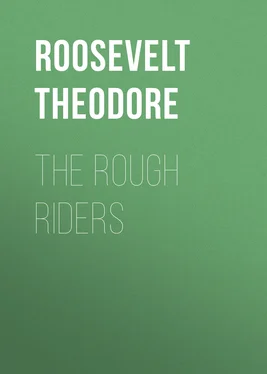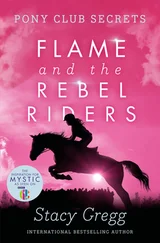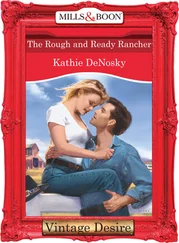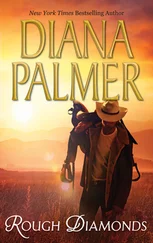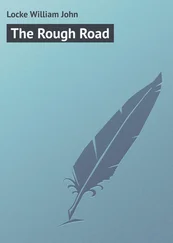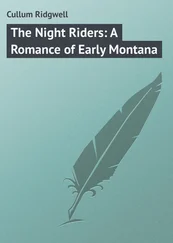Theodore Roosevelt - The Rough Riders
Здесь есть возможность читать онлайн «Theodore Roosevelt - The Rough Riders» — ознакомительный отрывок электронной книги совершенно бесплатно, а после прочтения отрывка купить полную версию. В некоторых случаях можно слушать аудио, скачать через торрент в формате fb2 и присутствует краткое содержание. Жанр: foreign_prose, История, foreign_edu, foreign_antique, на английском языке. Описание произведения, (предисловие) а так же отзывы посетителей доступны на портале библиотеки ЛибКат.
- Название:The Rough Riders
- Автор:
- Жанр:
- Год:неизвестен
- ISBN:нет данных
- Рейтинг книги:3 / 5. Голосов: 1
-
Избранное:Добавить в избранное
- Отзывы:
-
Ваша оценка:
- 60
- 1
- 2
- 3
- 4
- 5
The Rough Riders: краткое содержание, описание и аннотация
Предлагаем к чтению аннотацию, описание, краткое содержание или предисловие (зависит от того, что написал сам автор книги «The Rough Riders»). Если вы не нашли необходимую информацию о книге — напишите в комментариях, мы постараемся отыскать её.
The Rough Riders — читать онлайн ознакомительный отрывок
Ниже представлен текст книги, разбитый по страницам. Система сохранения места последней прочитанной страницы, позволяет с удобством читать онлайн бесплатно книгу «The Rough Riders», без необходимости каждый раз заново искать на чём Вы остановились. Поставьте закладку, и сможете в любой момент перейти на страницу, на которой закончили чтение.
Интервал:
Закладка:
Meanwhile we were purchasing horses. Judging from what I saw I do not think that we got heavy enough animals, and of those purchased certainly a half were nearly unbroken. It was no easy matter to handle them on the picket-lines, and to provide for feeding and watering; and the efforts to shoe and ride them were at first productive of much vigorous excitement. Of course, those that were wild from the range had to be thrown and tied down before they could be shod. Half the horses of the regiment bucked, or possessed some other of the amiable weaknesses incident to horse life on the great ranches; but we had abundance of men who were utterly unmoved by any antic a horse might commit. Every animal was speedily mastered, though a large number remained to the end mounts upon which an ordinary rider would have felt very uncomfortable.
My own horses were purchased for me by a Texas friend, John Moore, with whom I had once hunted peccaries on the Nueces. I only paid fifty dollars apiece, and the animals were not showy; but they were tough and hardy, and answered my purpose well.
Mounted drill with such horses and men bade fair to offer opportunities for excitement; yet it usually went off smoothly enough. Before drilling the men on horseback they had all been drilled on foot, and having gone at their work with hearty zest, they knew well the simple movements to form any kind of line or column. Wood was busy from morning till night in hurrying the final details of the equipment, and he turned the drill of the men over to me. To drill perfectly needs long practice, but to drill roughly is a thing very easy to learn indeed. We were not always right about our intervals, our lines were somewhat irregular, and our more difficult movements were executed at times in rather a haphazard way; but the essential commands and the essential movements we learned without any difficulty, and the men performed them with great dash. When we put them on horseback, there was, of course, trouble with the horses; but the horsemanship of the riders was consummate. In fact, the men were immensely interested in making their horses perform each evolution with the utmost speed and accuracy, and in forcing each unquiet, vicious brute to get into line and stay in line, whether he would or not. The guidon-bearers held their plunging steeds true to the line, no matter what they tried to do; and each wild rider brought his wild horse into his proper place with a dash and ease which showed the natural cavalryman.
In short, from the very beginning the horseback drills were good fun, and everyone enjoyed them. We marched out through the adjoining country to drill wherever we found open ground, practising all the different column formations as we went. On the open ground we threw out the line to one side or the other, and in one position and the other, sometimes at the trot, sometimes at the gallop. As the men grew accustomed to the simple evolutions, we tried them more and more in skirmish drills, practising them so that they might get accustomed to advance in open order and to skirmish in any country, while the horses were held in the rear.
Our arms were the regular cavalry carbine, the "Krag," a splendid weapon, and the revolver. A few carried their favorite Winchesters, using, of course, the new model, which took the Government cartridge. We felt very strongly that it would be worse than a waste of time to try to train our men to use the sabre—a weapon utterly alien to them; but with the rifle and revolver they were already thoroughly familiar. Many of my cavalry friends in the past had insisted to me that the revolver was a better weapon than the sword—among them Basil Duke, the noted Confederate cavalry leader, and Captain Frank Edwards, whom I had met when elk-hunting on the head-waters of the Yellowstone and the Snake. Personally, I knew too little to decide as to the comparative merits of the two arms; but I did know that it was a great deal better to use the arm with which our men were already proficient. They were therefore armed with what might be called their natural weapon, the revolver.
As it turned out, we were not used mounted at all, so that our preparations on this point came to nothing. In a way, I have always regretted this. We thought we should at least be employed as cavalry in the great campaign against Havana in the fall; and from the beginning I began to train my men in shock tactics for use against hostile cavalry. My belief was that the horse was really the weapon with which to strike the first blow. I felt that if my men could be trained to hit their adversaries with their horses, it was a matter of small amount whether, at the moment when the onset occurred, sabres, lances, or revolvers were used; while in the subsequent melee I believed the revolver would outclass cold steel as a weapon. But this is all guesswork, for we never had occasion to try the experiment.
It was astonishing what a difference was made by two or three weeks' training. The mere thorough performance of guard and police duties helped the men very rapidly to become soldiers. The officers studied hard, and both officers and men worked hard in the drill-field. It was, of course, rough and ready drill; but it was very efficient, and it was suited to the men who made up the regiment. Their uniform also suited them. In their slouch hats, blue flannel shirts, brown trousers, leggings and boots, with handkerchiefs knotted loosely around their necks, they looked exactly as a body of cowboy cavalry should look. The officers speedily grew to realize that they must not be over-familiar with their men, and yet that they must care for them in every way. The men, in return, began to acquire those habits of attention to soldierly detail which mean so much in making a regiment. Above all, every man felt, and had constantly instilled into him, a keen pride of the regiment, and a resolute purpose to do his whole duty uncomplainingly, and, above all, to win glory by the way he handled himself in battle.
II
Up to the last moment we were spending every ounce of energy we had in getting the regiment into shape. Fortunately, there were a good many vacancies among the officers, as the original number of 780 men was increased to 1,000; so that two companies were organized entirely anew. This gave the chance to promote some first-rate men.
One of the most useful members of the regiment was Dr. Robb Church, formerly a Princeton foot-ball player. He was appointed as Assistant Surgeon, but acted throughout almost all the Cuban campaign as the Regimental Surgeon. It was Dr. Church who first gave me an idea of Bucky O'Neill's versatility, for I happened to overhear them discussing Aryan word-roots together, and then sliding off into a review of the novels of Balzac, and a discussion as to how far Balzac could be said to be the founder of the modern realistic school of fiction. Church had led almost as varied a life as Bucky himself, his career including incidents as far apart as exploring and elk-hunting in the Olympic Mountains, cooking in a lumber-camp, and serving as doctor on an emigrant ship.
Woodbury Kane was given a commission, and also Horace Devereux, of Princeton. Kane was older than the other college men who entered in the ranks; and as he had the same good qualities to start with, this resulted in his ultimately becoming perhaps the most useful soldier in the regiment. He escaped wounds and serious sickness, and was able to serve through every day of the regiment's existence.
Two of the men made Second Lieutenants by promotion from the ranks while in San Antonio were John Greenway, a noted Yale foot-ball player and catcher on her base-ball nine, and David Goodrich, for two years captain of the Harvard crew. They were young men, Goodrich having only just graduated; while Greenway, whose father had served with honor in the Confederate Army, had been out of Yale three or four years. They were natural soldiers, and it would be well-nigh impossible to overestimate the amount of good they did the regiment. They were strapping fellows, entirely fearless, modest, and quiet. Their only thought was how to perfect themselves in their own duties, and how to take care of the men under them, so as to bring them to the highest point of soldierly perfection. I grew steadily to rely upon them, as men who could be counted upon with absolute certainty, not only in every emergency, but in all routine work. They were never so tired as not to respond with eagerness to the slightest suggestion of doing something new, whether it was dangerous or merely difficult and laborious. They not merely did their duty, but were always on the watch to find out some new duty which they could construe to be theirs. Whether it was policing camp, or keeping guard, or preventing straggling on the march, or procuring food for the men, or seeing that they took care of themselves in camp, or performing some feat of unusual hazard in the fight—no call was ever made upon them to which they did not respond with eager thankfulness for being given the chance to answer it. Later on I worked them as hard as I knew how, and the regiment will always be their debtor.
Читать дальшеИнтервал:
Закладка:
Похожие книги на «The Rough Riders»
Представляем Вашему вниманию похожие книги на «The Rough Riders» списком для выбора. Мы отобрали схожую по названию и смыслу литературу в надежде предоставить читателям больше вариантов отыскать новые, интересные, ещё непрочитанные произведения.
Обсуждение, отзывы о книге «The Rough Riders» и просто собственные мнения читателей. Оставьте ваши комментарии, напишите, что Вы думаете о произведении, его смысле или главных героях. Укажите что конкретно понравилось, а что нет, и почему Вы так считаете.
